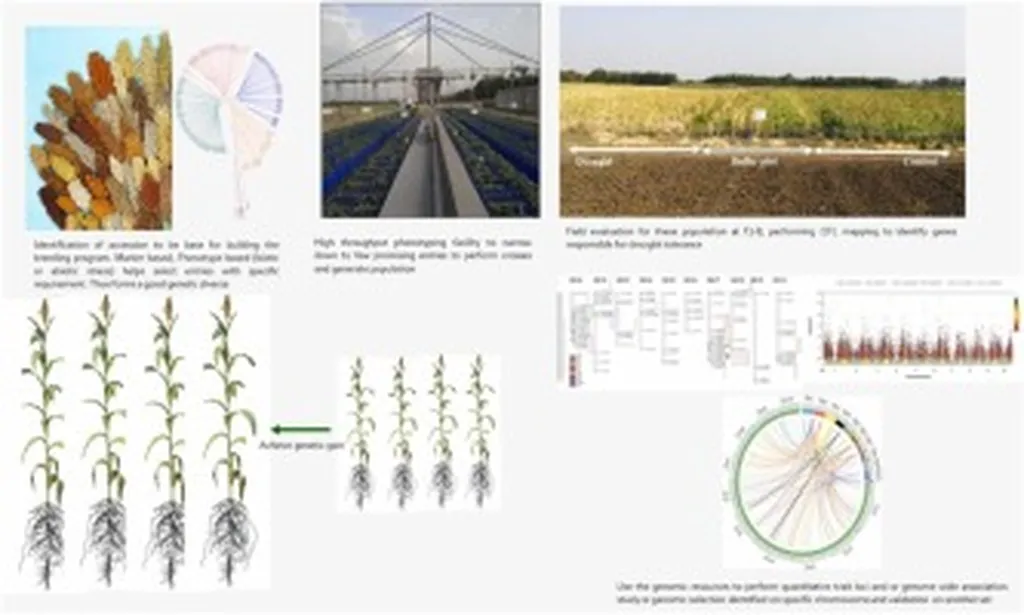In the ever-evolving landscape of agriculture, precision and predictability are key to optimizing resource management and maximizing yields. A recent study published in *Frontiers in Plant Science* introduces a novel data-driven crop model that could revolutionize how farmers and agronomists approach biomass sorghum cultivation. Led by Yanbin Chang from the School of Industrial Engineering and Management at Oklahoma State University, this research offers a sophisticated tool for simulating sorghum growth processes, with significant implications for the agriculture sector.
The model integrates a detailed physiological framework with data-driven techniques to calibrate genotypic parameters using experimental data. This integration allows for accurate predictions of biomass production and a nuanced understanding of how environmental and management factors influence phenotypic development. “Our model not only predicts final yield but also disentangles the effects of various factors on the growth process,” Chang explains. “This level of detail is crucial for optimizing resource management, especially in regions with variable climates and limited resources.”
The implications for the agriculture sector are profound. Biomass sorghum is a valuable crop for bioenergy production, animal feed, and other industrial applications. Accurate yield predictions can help farmers make informed decisions about planting, irrigation, and fertilization, ultimately leading to higher productivity and profitability. “By understanding the interactions between genotype, environment, and management practices, farmers can tailor their approaches to specific conditions,” Chang adds. “This precision agriculture approach can lead to more sustainable and efficient farming practices.”
The model’s ability to achieve accurate predictions even with limited data is a significant advancement. Traditional process-based crop models often require extensive data inputs, which can be a barrier to their widespread adoption. This new data-driven approach lowers the barrier to entry, making it more accessible to farmers and agronomists worldwide.
Looking ahead, this research could shape future developments in the field of precision agriculture. As data collection and analysis technologies continue to advance, the integration of data-driven techniques with physiological frameworks could become a standard approach for crop modeling. This could lead to more sophisticated models that can predict not just yield but also the quality and nutritional content of crops, further enhancing the efficiency and sustainability of agricultural practices.
In the quest for sustainable and efficient agriculture, this novel data-driven crop model represents a significant step forward. By providing accurate predictions and valuable insights, it empowers farmers and agronomists to make informed decisions, ultimately contributing to a more resilient and productive agricultural sector. As Yanbin Chang and his team continue to refine and expand this model, its potential to transform the field of precision agriculture becomes increasingly evident.

